[ad_1]
Nissan just revealed details on what to expect with its upcoming 2026 Leaf electric vehicle (EV), and it’s quite a step up from the current model year.
We’re talking all-new styling, longer range on a single charge, and a refreshed cabin with improved creature comforts. Oh, and it’s no longer a hatchback.
Indeed, the third-generation Leaf breaks from tradition in more ways than one. Gone are the compact body style and the downward-facing angular grille that’s subtly evolved over the model’s last 15 years of existence. In their place, you’ll see a coupe-SUV with full-width headlights common to many new cars on the market.
There are a bunch more changes that set the new Leaf apart from its predecessor. Here’s everything that’s new and worth a closer look when you take it for a test drive.
Exterior
Despite its appearance, the new Leaf is actually smaller than the outgoing hatchback by a wee bit. It has a shorter wheelbase, it’s shorter by 0.4 inches (1 cm), and has a touch less ground clearance too.
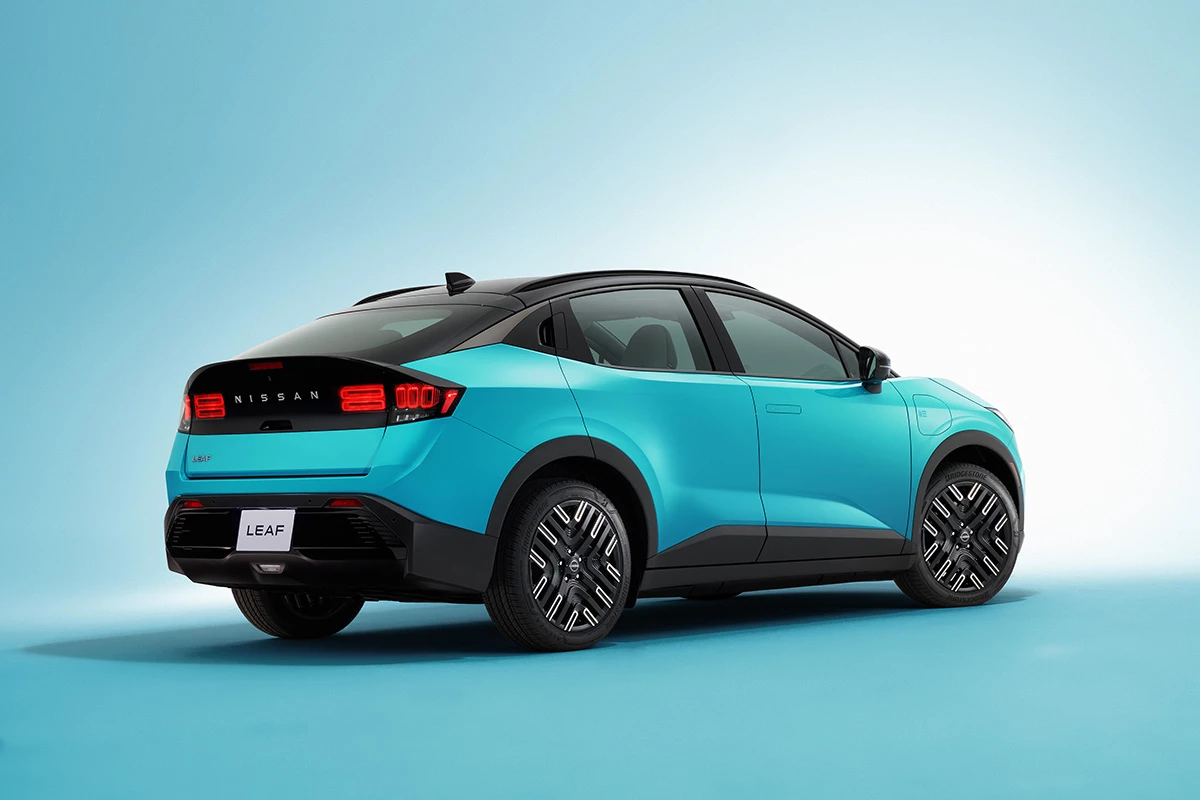
Nissan
However, there’s a bit more cargo area in the new model when you fold down the rear seat: 56 cubic feet (1,586 liters) compared to 30 cubic feet (850 liters) in the 2025 version.
There are LEDs gracing the new front fascia lighting, as well as the 3D holographic taillights. You’ll also notice flush door handles and up to 19-inch alloy wheels depending on the trim you choose.
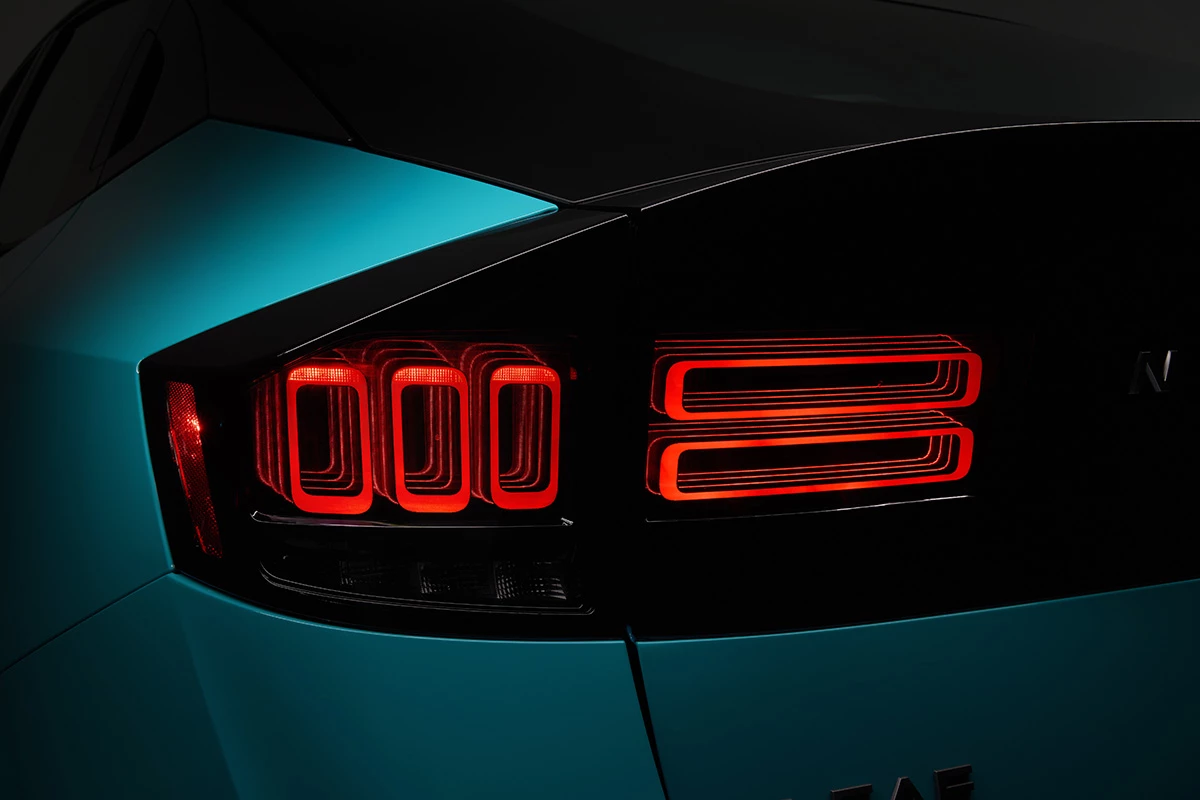
Nissan
Under the hood
The new top-end Leaf’s front-wheel drive powertrain puts out 214 hp – the same as the last model’s SV Plus variant – albeit with 261 lb.ft (354 Nm) of torque instead of 250 lb.ft (339 Nm). The bigger difference is in the base model, which does 174 hp and 254 lb.ft (344 Nm) instead of 147 hp and 236 lb.ft (320 Nm).
Nissan says it’s worked extensively on aerodynamics and bigger battery packs to extend range. So you’re looking at 303 miles (487.6 km) of range from the 75-kWh battery, up from 212 miles (341 km) with the older 60-kWh pack; the company hasn’t said what its base model 52-kWh battery will be good for.
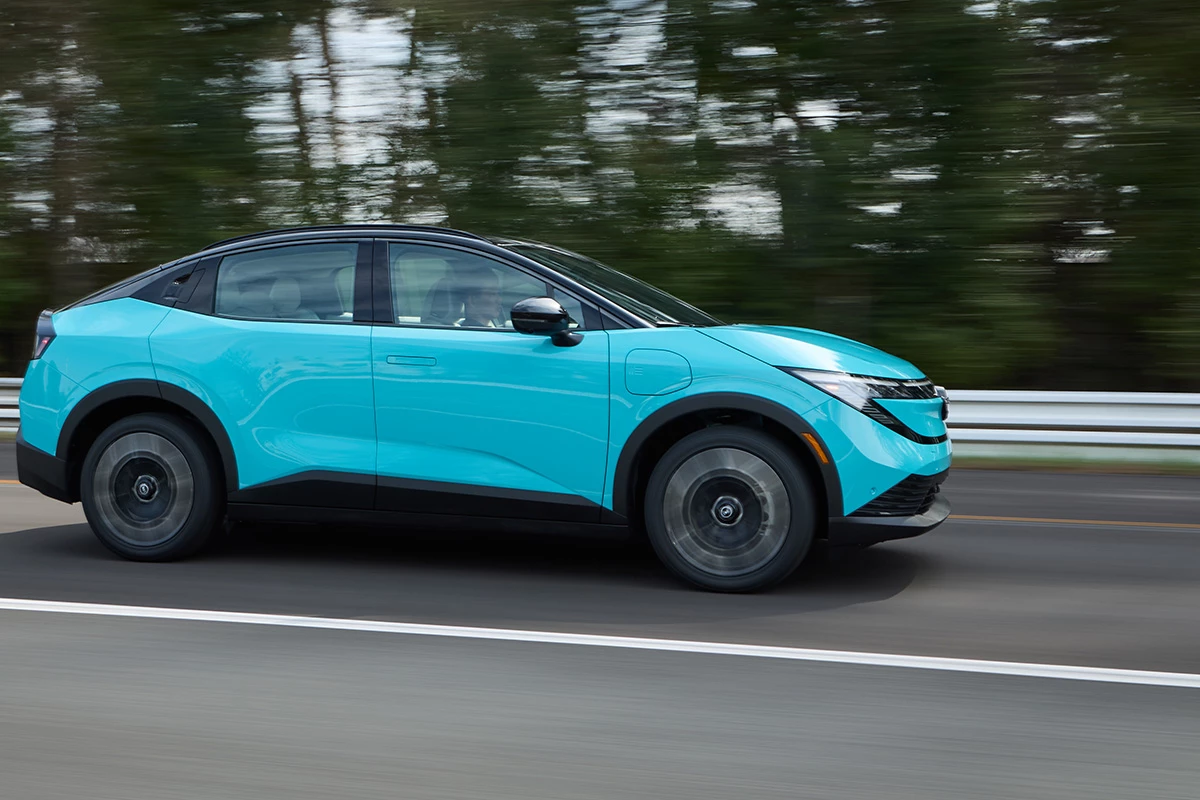
Nissan
Whichever variant you go for, you’ll get faster charging than the previous Leaf, as well as the inclusion of an NACS charging port that will let you use Tesla’s network of Superchargers.
Interior
The new cabin gets a tech glow-up, with larger dual 14.3-inch displays, a head-up display, and a 360-degree camera feed to help you slot near charging points more easily.
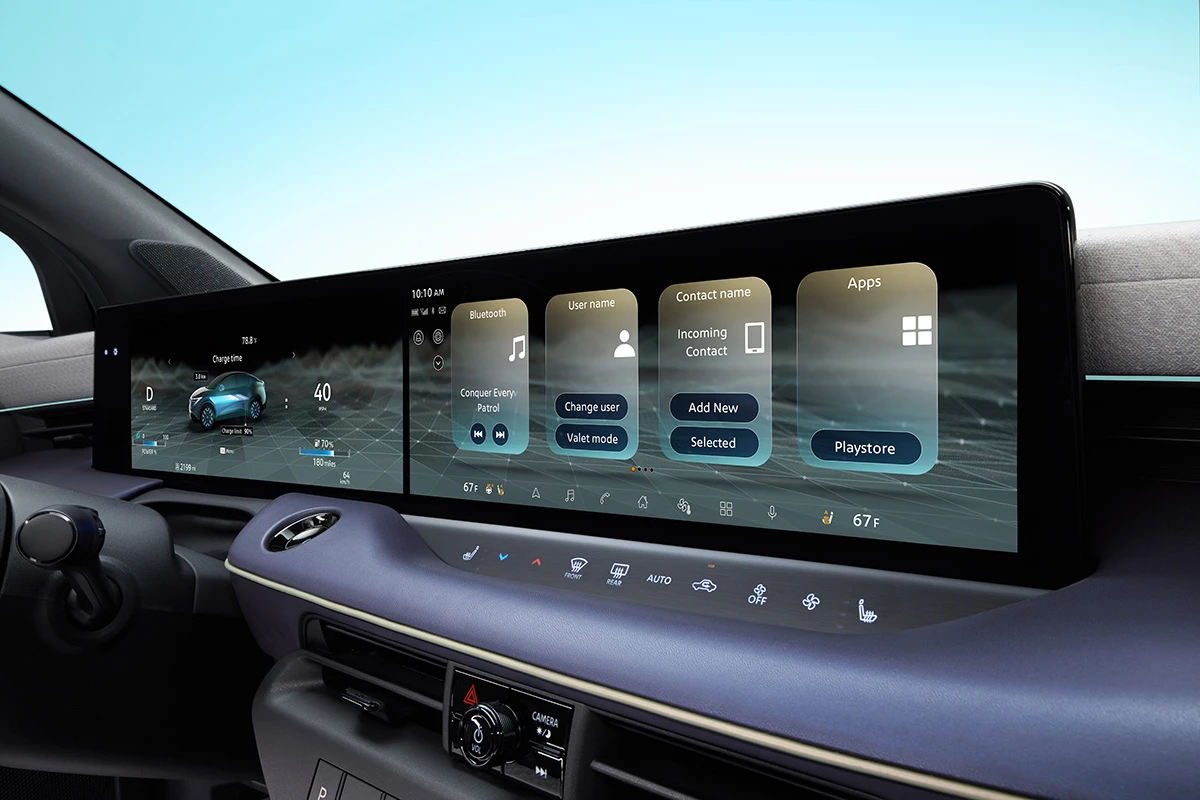
Nissan
There are also a bunch of nice-to-have features, including a dimming panoramic roof, a Bose audio system with the ability to tune the sound stage for just you or the whole cabin, and headphone tech built into the headrests.
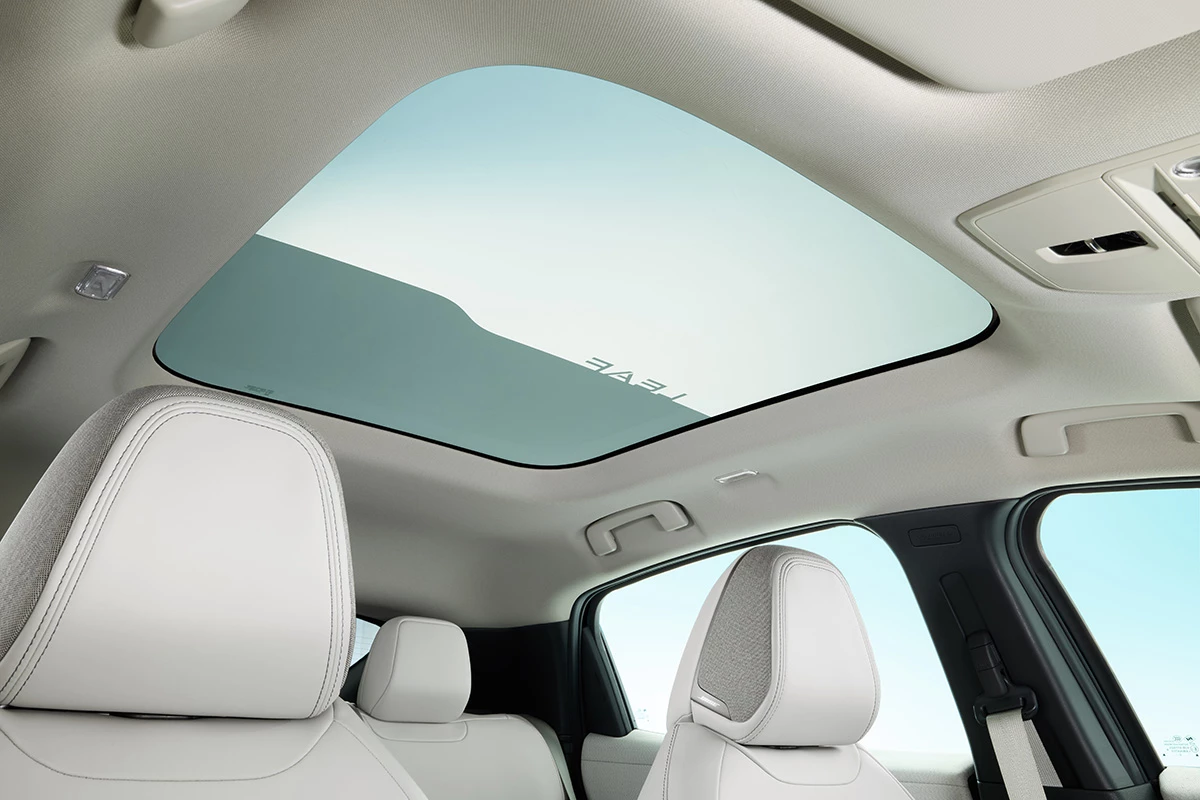
Nissan
Nissan says you can expect better acceleration this time around, and adjustable regenerative braking with paddles to control coasting and deceleration.
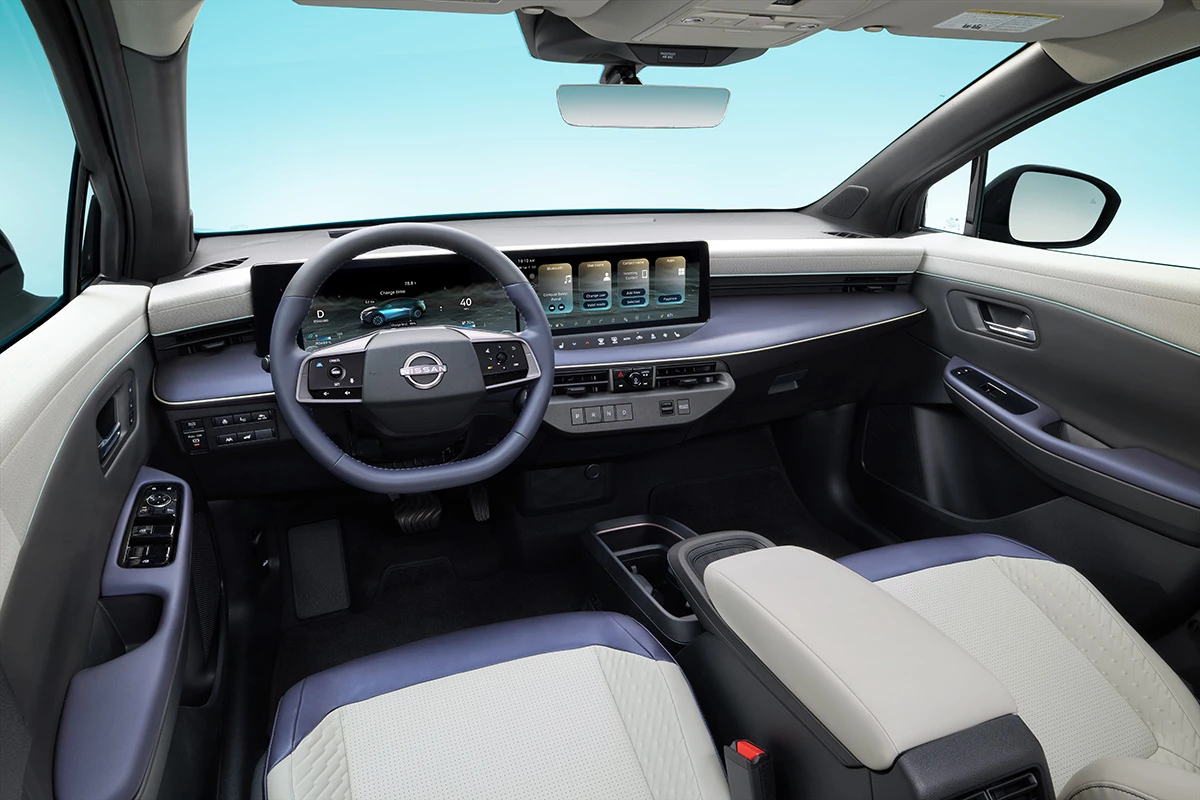
Nissan
All these updates equate to a notable refresh that’s worth a close look at the dealership when it arrives later this year. Pricing is yet to be revealed, but it will likely start somewhere above the current model’s just-below-US$30,000 mark, but under $40,000.
Check out the new model over on Nissan’s site.
Source: Nissan
[ad_2]